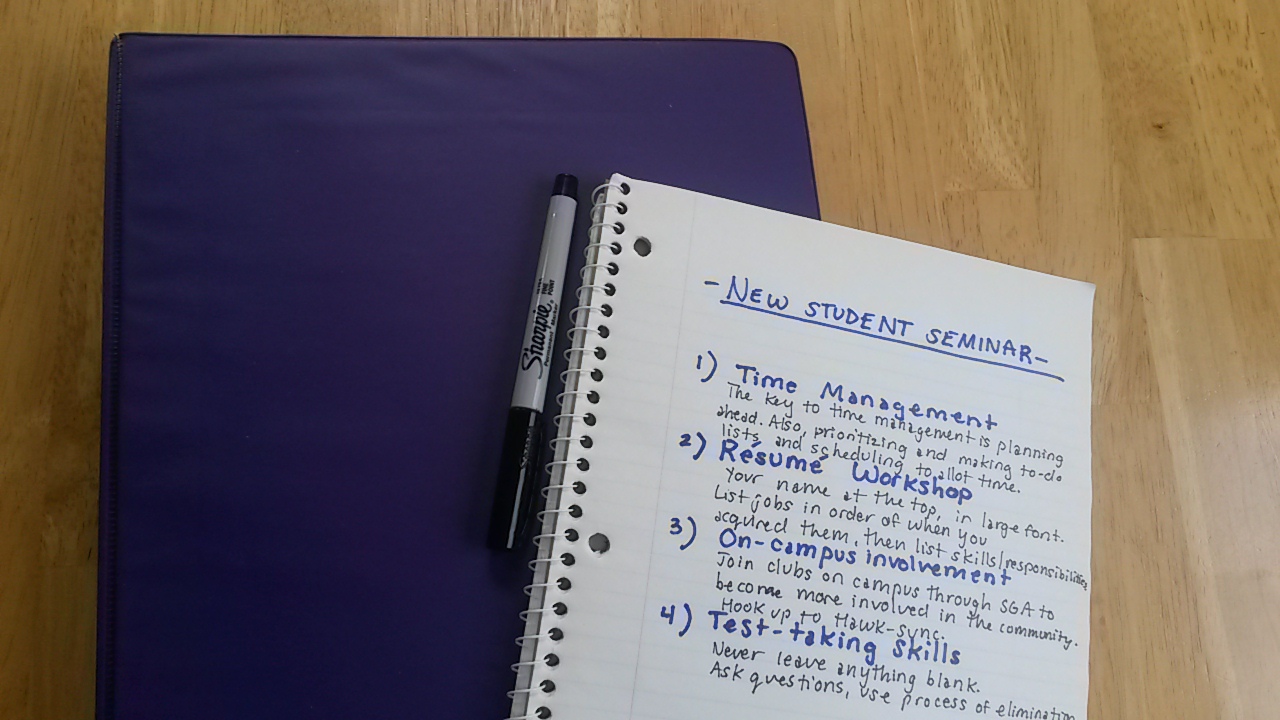Remember your New Student Seminar course?
Well, as another wave of college freshmen enter Montclair State next fall, they will also be required to take the same course for their first semester, New Student Seminar. This one-credit, general education requirement is designed to be a guide for new students in achieving success throughout their college years. Some of these seminar topics include studying tips, time management skills, getting involved at Montclair State, addressing social challenges, safety awareness and so on.
However, while all of these topics are important to discuss with up-and-coming students, they give little insight into the real dilemmas that students can face later in their collegiate careers and even after their graduation from Montclair State.
Too often, many students are faced with the headache of indecisiveness. They are left realizing that certain majors, opportunities, interests or must-have skills for their careers come much later on in their careers. A student’s story can begin with them knowing what they wanted to accomplish during and after college, but then, from an unexpected twist in their semester, they decided to change their major, even more than once in some cases. While this can be a happy ending for some, it can be an obstacle course for others. They could be stuck taking more classes and pushing back their expected graduation date, rushing to finish with a lacking résumé.
Sadly, across campus, it is not uncommon to hear about the frequent frustration which is felt by the same students who had completed the freshman seminar class. Sure, many of us are all aware of the mantra that Montclair State is we are no longer hand-holding high school students. College automatically equates to adulthood, and we are now responsible for all our own decision-making in reaching our future goals.
But why are we suddenly held accountable for the things we did not know? High school already lacks many of the resources and exposure needed in deciding careers and, in turn, the need for an alternative is dire. Most students don’t even remember their seminar class anyway, or faintly recall it as a boring gen-ed. There are ways of making the transition easier while still pushing students to grow independently on their own.
Instead of one New Student Seminar, Montclair State should replace it with multiple hands-on seminars for freshman. This is what other universities have offered, and, as a result, have seen positive results in their students’ decision-making. These lectures would still teach many of the same college 101 tips as before, but their primary purpose would change. The students would now be free to pick the one-credit seminars that best reflect their areas or majors of interest. They would be not be limited by department, but would be interdisciplinary so students can explore without scrutiny and costly burdens.
In addition, the courses would engage students and knowledgeable instructors in their respective fields to pose thought-provoking questions and discussions in that major area of interest. It would inform students of the realities of the jobs, all the processes and coursework needed as well as the skills and opportunities recommended to make a viable résumé for employers. The courses could be offered in both the fall and spring semesters, with a two-seminar cap for each of them. Open events, similar to career fairs, could be held throughout the year, which would be a great addition to the four-year college plan, student orientation and Center for Advising and Student Transitions.
Finally, the students would receive basic hands-on experience towards the end of the semester. This is a major conflict for students not knowing what they would expect in the real world. For example, students interested in accounting could do audits, psychology majors could practice therapy tips with the professionals, and so on. It can open a whole new world and provide confidence among students in knowledge of the field.
Overall, the alternative is a great investment. Experimentation is part of the exciting process and can pay off to future successes in and out of college.



